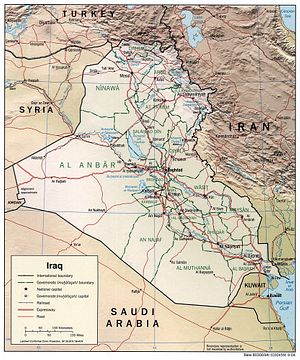U.S. President Barack Obama announced Thursday night that he has decided to take action via “targeted” air strikes in Iraq given the Islamic State’s (IS, formerly known as the Islamic State of Iraq and the Levant) attempt at genocide against Iraqi’s Yazidis and other groups. The decision marks a sharp escalation in the brewing crisis in Iraq that broke out earlier this summer after the radical Salafi group captured Mosul from the lethargic and unmotivated Iraqi army. Since then, the group has declared a new caliphate and has systematically begun to terrorize Iraq’s non-Sunni population. The Obama administration has no real good options in Iraq, but its choice to move forward with air strikes could be a game changer.
The United States’ decision to become involved in Iraq at this point will test the administration’s strategic preference for targeted air strikes as its mode of kinetic engagement with the United States’ enemies. One of Obama’s first foreign policy goals as president was to end his predecessor’s ground war in Iraq. Given this, the administration will go to great lengths to convince the American people (and itself) that no U.S. boots will fight IS on the ground in Iraq. “As commander in chief, I will not allow the United States to be drawn into fighting another war in Iraq,” Obama emphasized in his announcement that the U.S. would become militarily involved in Iraq. “Today, America is coming to help,” Obama said. “The U.S. cannot turn a blind eye,” he added, emphasizing the potential for genocide in Iraq.
According to Iraqi officials, the United States has been sharing its intelligence with Iraqi security forces but has not yet participated in any air-strikes against the Islamic State. The Iraqi Air Force carried out airstrikes against IS on Thursday evening, killing two IS emirs in the process. The United States will provide support to Iraq’s Kurdish region. It will attempt to halt IS’s progress towards the city of Erbil. Over the past week, fighting has intensified between Iraq’s Kurds and IS militants near Erbil. According to a White House statement, U.S. forces have airdropped humanitarian supplies to the besieged Iraqi communities. IS militants have managed to trap thousands of Iraqi Yazidis on Mount Sinjar with little food or water.
The IS’s behavior towards Iraq’s non-Sunni minorities is growing increasingly genocidal. While the group offered some Christians the option of paying a fee in exchange for a second-class existence, IS militants have given Iraq’s Yazidis no such option. The radical Salafi group sees the Yazidis as apostates deserving of death and is indiscriminately killing Yazidis as a group. IS’s actions in recent weeks likely satisfy enough of the preconditions outlined in the U.N. Convention on the Prevention and Punishment of Genocide that international intervention is a legal obligation given that the Iraqi government is ill-equipped to neutralize the IS on its own.

































